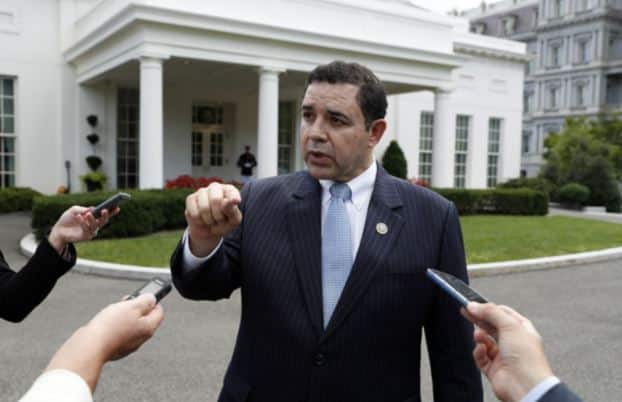Bipartisan Bill to Expand Training for Family Caregivers of Those With Autism

WASHINGTON — A bipartisan bill reintroduced in both the House and Senate would expand access to caregiver skills training for family members who care for children with autism spectrum disorder and other developmental disabilities.
The measure was introduced last month by Reps. Henry Cuellar, D-Texas, Grace Meng, D-N.Y., Brian Fitzpatrick, R-Penn., and Marc Molinaro, R-N.Y., and has been referred to the House Committee on Energy and Commerce.
A companion bill was introduced by Sens. Robert Menendez, D-N.J., and Susan Collins, R-Maine, and is now before the Senate Committee on Health, Education, Labor and Pensions.
If the bills advance in each chamber, they would establish a five-year pilot program that would award grants to nonprofit organizations, community health centers and hospital systems to provide evidence-based caregiver skills training to family caregivers of children with autism or other developmental disabilities or delays.
During the training, family caregivers would be trained in how to use everyday routines and home activities to improve the mental and physical well-being of the child in their care.
Among the broad areas that would be the focus of the training would be communication skills, daily living skills, social engagement and behavior management.
“As co-chair of the Congressional Autism Caucus, I am committed to empowering caregivers that serve children with autism,” Cuellar said in a written statement.
“The Autism Caregivers Act is a bold, bipartisan bill that will provide caregiver skills training for family members who care for children with autism spectrum disorder,” said Molinaro.
“This will give families and caregivers the knowledge and tools to meet their children’s unique needs. As the founder of the nationally recognized ThinkDIFFERENTLY Initiative, I’ve long recognized the need to improve health outcomes for individuals with disabilities. Today, we are taking another step forward in our commitment to improving the lives of individuals with disabilities,” Molinaro said.
“Millions of American families devote enormous time and attention to care for loved ones with autism and to ensure they have the same opportunities as their peers,” Collins said.
“Our bipartisan legislation would support the efforts of these selfless caregivers to improve the well-being of children with autism,” she continued. “By providing families with the tools and resources they need to succeed, we can ensure that all children have the ability to reach their full potential and lead rich, fulfilling lives.”
In March, the Centers for Disease Control and Prevention released an updated report on autism’s prevalence among the nation’s children.
The report showed an increase in prevalence with one in 36 children, or just over 2.7% of 8-year-old children, diagnosed with autism spectrum disorder in 2020, and for the first time showed higher prevalence rates among Black, Hispanic and Asian or Pacific Islander children compared to their White counterparts.
This increase reinforces the need for greater support services for all children with autism, the lawmakers said.
Dr. Andy Shih, chief science officer at Autism Speaks, applauded the reintroduction of the legislation, saying it “recognizes the urgency of addressing disparities in access to autism services and meeting the needs of individuals across the spectrum, particularly in diverse communities across the country.
“By providing caregivers with access to evidence-based resources, the Autism Family Caregivers Act will help to create better outcomes for children with autism and other developmental disabilities in underserved communities while also supporting the well-being of those who care for them,” Shih said.
In addition to Autism Speaks, other endorsing organizations include the National Association of Councils on Developmental Disabilities, the Arc, Community Inclusion & Development Alliance, National Down Syndrome Society, Family Voices, American Academy of Pediatrics, and Autism Society of America.
Dan can be reached at [email protected] and @DanMcCue

























